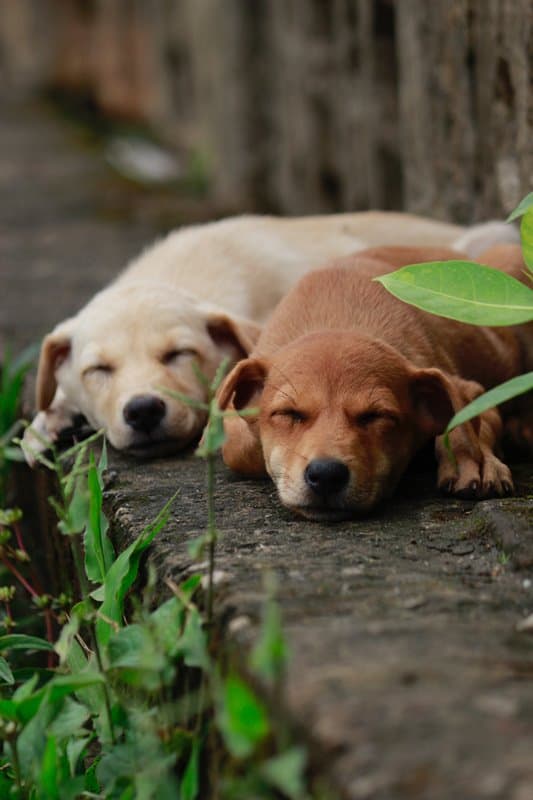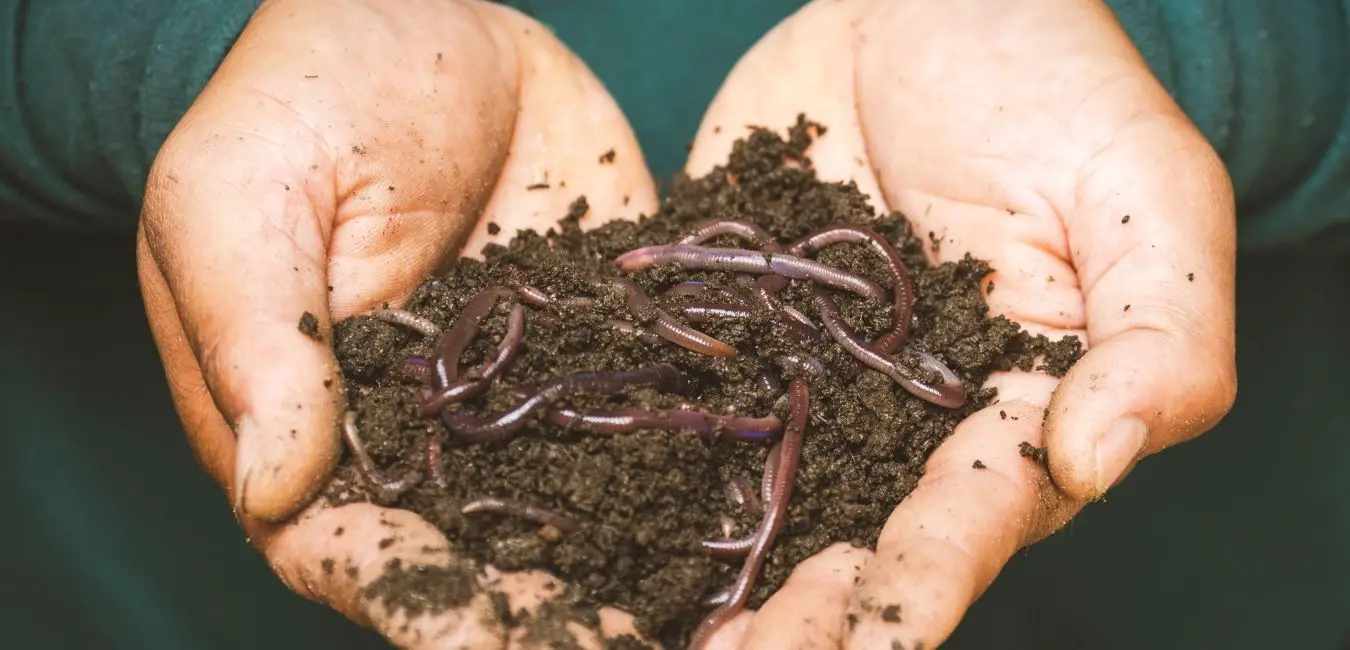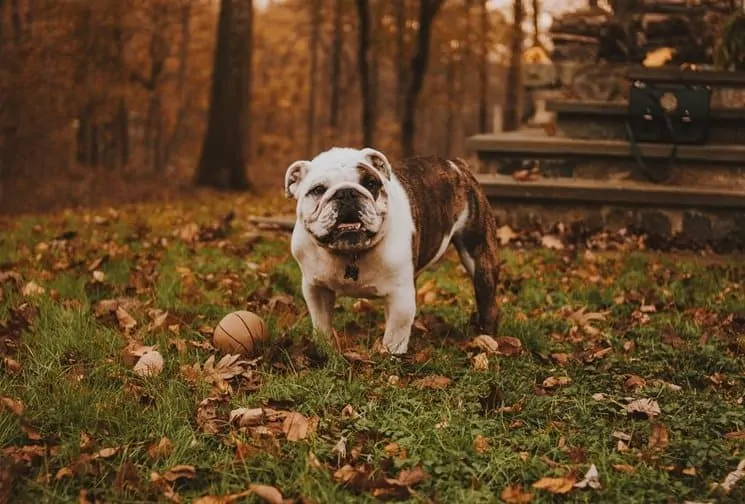Gardening and lawn care are something that makes a home gardener happy. Our garden and lawn area is the playgrounds for kids and pets, especially dogs. If you have a pet dog or cat then you know what I’m talking about. It’s a delight for the eye to see them running and playing on the lawn. They make the environment happy and active. I always prefer natural organic products for the sake of my pets and children. So I tried the same for my garden as I know compost is a better option than chemical fertilizer and pesticide. One day a dog fell ill and then I asked this question on a forum. Is Organic Fertilizer Safe For Pets?– The answer is heartbreaking- No Organic Fertilizers are not perfectly safe for your pest. They are natural but contain several indigents that can harm our pets.
A packaged compost may contain some chemicals used to treat fungus or just to increase the decomposition rate. The compost bin in your home may contain several items that can harm the pets. Sometimes stale food or anything rotten in the compost bin can harm our pets if they ingest it.
The veterinarian also confirmed this. Probably my dog gets something out of a compost pile that caused the mess. He is fine now and this incident encourages me to write this article. If you have a pet dog or cat and you are planning to fertilize your lawn then please check out this post before proceeding.

Check out my previous post: Everything To Know About NPK Fertilizers
Can we allow dogs in the garden after applying compost?
Yes, You can but you should not at least for a day. If you don’t want to stop pets playing in the garden or lawn then cover the compost with a thick layer of soil. This will lower the smell of decomposing matter and they may ignore it.
Raking the area before and after the application of any organic fertilizer is very helpful. This will distribute the compost evenly in the soil and your pet dog or cat cannot get much of it. They may still find some but the low quantity will not harm them.
Don’t forget to water deeply after putting compost in the soil. It helps in mixing compost in the soil. Water also lowers the smell that can attract pets towards it.
Homemade organic compost is not fatal dangerous for pets. Only prevent them to eat it in high quantity. A little bit of sniffing will not harm the pets especially if the compost is properly mixed in the soil.
Organic compost can only harm our pests if they ingest it directly from the compost pile. Otherwise, it is safe for dogs unless you overdo composting in the lawn area.
Can organic fertilizer harm our Pets?
Yes, any organic fertilizer can harm our pets. Different fertilizers whether organic or inorganic are prepared to boost plant growth. They are intended to release Nitrogen, Potassium, and Phosphorus in high concentrations. The material used in the preparation is food for microbes. It is not for our pets.
If they ingest these fertilizers then the compound may cause indigestion. This can lead to stomach pain, intestinal infection, scars on the skin, internal bleeding, ulcers, and rashes. It can even cause fatal damage in the worst case. So you must understand the nature of the fertilizer. Try to learn and do some research on the brand and its product. You can take help or suggestions from various pet or gardening forums.
Initial details can be found on the package itself. It may have details like composition, usages, viability, safety procedures, expiry details, and contact if any mishappening occurs. Use all of these details and make sure the fertilizer is safe for pets.
Also read: Is dog poop good fertilizer-How to compost it?
Symptoms of Fertilizer poisoning on Pets?
The common symptoms of fertilizer poisoning on pets are similar to food poisoning. It includes lethargy, vomiting, diarrhea, stomach pain, and loss of apatite.
These symptoms are so common that identifying them as a result of fertilizer poisoning is difficult. In this situation don’t waste time on googling this or that. Just visit a pet care center or any registered vet and ask for help.
In the worst case, you may also find symptoms as-
- Redness in eyes.
- Burning marks on skin and paw pads.
- Sudden Loss of fur and hair.
- Indigestion and improper bowel movement.
Rush to the doctor as soon as you find any of these symptoms.
How to make Organic Fertilizer Pet Safe?
You must understand one thing that no organic or inorganic compost is 100% safe for your pets. It may or may not harm your pets but it definitely can. So either make your compost or use any EPA-certified organic fertilizer.
Avoid using organic matter that can harm pets in the compost bins. Anything half decomposed or rotten in the bin can also harm our pets if they consume it.
Therefore you should keep the compost bin away from pets. If you prepare compost in piles then cover it carefully with a tarp or plastic sheets. This is the only way to keep it safe for pets by not allowing them to reach it.
If you use packaged compost or any organic fertilizer then follow the instruction given on the package. Use it in limited quantity and mix it well in the soil.

Why are there no Earthworms in my garden?-3 Reasons to know
Pet Safety Precaution in Fertilizing Lawn and Garden areas
- Use EPA-certified fertilizers on the lawn. These are pet-safe fertilizers.
- Cover the compost pile and bins carefully to protect them from your pets.
- Never fertilize your garden and lawn with half-decomposed organic matter. Pets can smell and ingest these materials. It is neither good for your plants nor your pets.
- Rake the Soil after fertilization to mix everything in the soil. This will reduce the chance of your pet getting something to eat out of this mixture.
- Water thoroughly every time after mixing compost any organic fertilizer in the soil.
Is Organic fertilizer safer than Inorganic fertilizers?
Yes, organic fertilizers are safer than inorganic fertilizers. Indeed, they are not 100% safe for pets yet you can treat them better than chemical fertilizers.
Chemical inorganic fertilizers are known to have a severe impact on both plants and animals. The most severe cases of fertilizer poisoning are always due to these inorganic fertilizers. Fatality is common in these cases.
Again there are exceptions with inorganic fertilizers. Not all of them are fatal if ingested by pets. You can also find a few inorganic fertilizers that are safe for pets. They usually don’t attract animals and hence pets don’t eat them. In this way, these inorganic fertilizers stay safe for pets. Though the list of pet-safe inorganic fertilizers is very small, still you can find some along with organic fertilizers.
Overall, in my opinion, organic fertilizers are always safer than inorganic fertilizers. They are better for the plant as well as the animals who come in contact with it.
Check out this article: How to Transplant Gray Dogwood Shrub?
Final Word
Is Organic Fertilizer Safe for Pets? No, it is not safe. There is no fertilizer whether organic or inorganic available in the market that is 100% safe for pets or humans. Each one has some drawbacks. They can certainly harm our pets especially if they consume them in high quantities. In the end, the ingested amount of fertilizer will decide what will be the outcome. If it has a low impact then the digestive system will reject it and your pet will vomit it out. Although In worst cases you have to rush to the hospital. Therefore learn everything about the fertilizer before using it in your lawn and garden. A little research will keep your pets safe.
Keep reading keep gardening!

